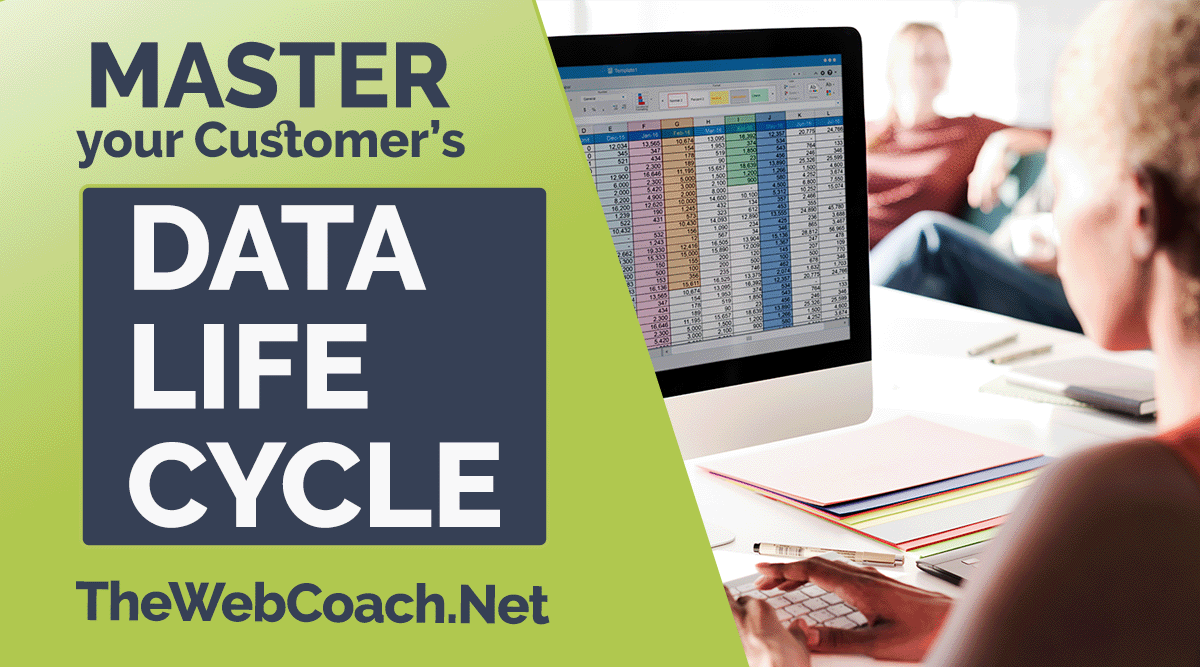In today’s digital age, data is the lifeblood of any website or business. We collect it, analyze it, and use it to inform every aspect of our operations, from marketing campaigns to product development.
But with great data power comes great data responsibility.
Managing your website and business data effectively requires understanding the entire Data Life Cycle – a journey from conception to deletion, ensuring its value thrives while protecting its security and privacy.
Planning the Voyage
The first step is charting your course. Identify your data needs: what information do you need to collect to achieve your goals?
Outline your data collection methods: website forms, customer surveys, or analytics tools?
Establish data governance policies: who’s responsible for data quality and security? This blueprint ensures you gather the right data, the right way.
(Citation: IBM, https://www.techtarget.com/searchstorage/definition/data-life-cycle-management).
Capturing the Treasure
Now, it’s time to set sail and collect your data. Websites need well-designed forms and clear data capture points, while offline sources require secure spreadsheets or CRM systems.
Remember, data quality is paramount: ensure accuracy, completeness, and consistency throughout the collection process
(Citation: Segment, https://segment.com/blog/data-life-cycle/).
Managing and Storing the Haul
The collected data needs a safe harbor. Choose a secure and scalable data storage solution based on your data volume and access needs.
Cloud storage offers flexibility and reliability, while on-premise solutions give you more control.
Implement data management procedures like backups, version control, and access controls to ensure its integrity and safety
(Citation: Harvard Business School, https://online.hbs.edu/blog/post/data-life-cycle).
Unlocking the Secrets
The collected data is a treasure trove of insights, but you need the right tools to unlock it.
Data analysis tools like dashboards and reporting platforms help you visualize trends, identify patterns, and gain actionable insights.
Leverage AI and machine learning to uncover hidden gems and make informed decisions based on data-driven evidence.
(Citation: IBM, https://www.techtarget.com/searchstorage/definition/data-life-cycle-management)
Preserving the Past
Not all data has immediate use. For long-term analysis or legal compliance, archiving data in a secure and accessible format is crucial.
Choose an archiving solution that meets your retention requirements and consider data compression to optimize storage space.
Remember, archived data needs regular maintenance and security checks
(Citation: University of Wisconsin-Madison, https://data.wisc.edu/).
Letting Go When It’s Time
Data, like most things in life, has a shelf life. When data loses its usefulness or legal retention period expires, securely dispose of it.
Data anonymization or encryption can be employed before deletion to protect sensitive information.
Regularly purging outdated data frees up storage space and minimizes security risks.
(Citation: TechTarget, https://www.techtarget.com/searchstorage/definition/data-life-cycle-management)
Mastering the Data Life Cycle
By understanding and managing the Data Life Cycle, you can unlock the true potential of your website and business data. It’s a continual journey that requires planning, vigilance, and adaptation. But navigate it wisely, and your data will become your most valuable asset, guiding you towards informed decisions, sustainable growth, and ultimately, success in the digital ocean.
Remember, data is power, but responsible data management is the compass that navigates you to a brighter future. So, set sail on your data journey, and may the winds of insight always be at your back!
Bonus Tip: Stay updated on evolving data privacy regulations (e.g., GDPR, CCPA) and ensure your data practices comply with these requirements.
Sources:
- IBM: https://www.techtarget.com/searchstorage/definition/data-life-cycle-management
- Segment: https://segment.com/blog/data-life-cycle/
- Harvard Business School: https://online.hbs.edu/blog/post/data-life-cycle
- University of Wisconsin-Madison: https://data.wisc.edu/
- TechTarget: https://www.techtarget.com/searchstorage/definition/data-life-cycle-management


